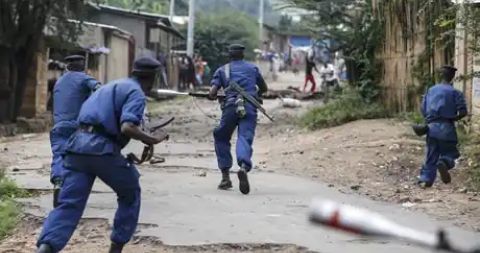Even with tensions between Rwanda and Burundi steadily decreasing since last year, Burundian government is still suspicious about certain Rwandan clandestine activities.
Since early this year, Burundi secret services -the National Intelligence Service (SNR), hired UAE security systems specialist Al Hamra to provide mobile phone tracking system, and other monitoring tools for counterintelligence purposes.
Burundi is believed to be threatened by recent Rwandan espionage activities particularly as both side still believes that the other is supportive of its opponents.
UAE defense and security company Al Hamra Trading Establishment which specializes on defense, security, intelligence and counter-intelligence, will provide tailor-made espionage solutions as well as support and training for the Burundian intelligence service.
Relations between Burundi and Rwanda nose-dived in 2015, when conflict broke out in Burundi and the late Pierre Nkurunziza accused Rwanda of backing the dissidents, a claim denied by Kigali.
The tensions between both countries rose to the highest in December 2018, when Burundian President Pierre Nkuruziza called for a special regional summit on what he described as an ‘open conflict’ with Rwanda.
In a letter leaked to the media within that period, President Nkuruziza accused Rwanda of being the origin of the crisis that Burundi has been going through since April, 2015. The letter dated December 4 and addressed to Ugandan President Yoweri Museveni maintained that Rwanda recruited and supported Burundian refugees who tried to destabilize Burundi.
Ugandan President Yoweri Museveni has been mediating between both Central African neighbors.
Burundi has been in a political crisis since Nkurunziza declared his intention to seek a third term, with more than 150,000 Burundian refugees living in camps in Tanzania, many of whom fled the violence.
In a response, Rwandan President Paul Kagame told the media in early 2019 that “for Burundi, the situation is simpler and clearer. For example, Burundi has publicly stated that Rwanda is its only problem. People make their own judgment. Let’s imagine that Rwanda does not exist. Would Burundi not be having problems?
“There are people charged with responsibilities for Burundi: Mkapa as facilitator, and President Museveni as mediator, and other East Africans, who have not come up with much success.
“They would have said that they have found out that Burundi does not have any problems — that the problem comes from outside,” Kagame asserted.
However, in October last year, Rwanda and Burundi agreed to start talks to end tensions between the neighbors. Rwanda’s top diplomat Vincent Biruta met his Burundian counterpart Albert Shingiro at the Nemba-Gasenyi border point as part of efforts to kickstart efforts to resolve outstanding bilateral issues.
The foreign ministers reinstated the need to revitalize the historical relations between the two countries. “This meeting is part of a shared desire to assess the state of bilateral relations between the two neighboring countries and to agree on the modalities of their normalization,” the diplomats said in a joint statement.
They said that their respective governments agreed on the need to continue dialogue and normalize relations. However, till date not much have been reported about the dialogue.
Since 2019,serious human rights violations and abuses still persists in Burundi, with politically motivated attacks on opponents in the run-up to the 2020 election says Amnesty International.
“There were severe restrictions on the rights to freedom of expression and association. Media workers, political opponents and human rights defenders were among those particularly targeted. Members of the Imbonerakure (the ruling party’s youth wing) were suspected to be the main perpetrators of violations and abuses, as well as the National Intelligence Service (SNR) and police.” Amnesty International adds.
